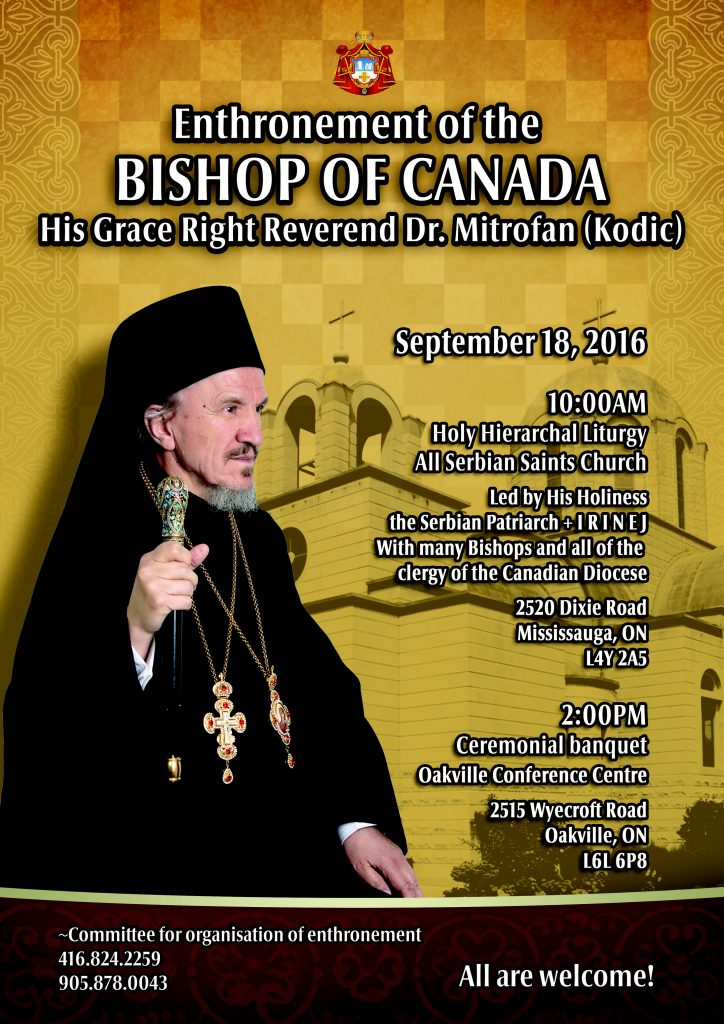
Larnaca, Cyprus, October 19, 2017
Reports have appeared in both Greek and English about a recent miracle of Elder Ephraim (Moraitis) of St. Anthony’s Monastery in Florence, AZ. Continue reading

Larnaca, Cyprus, October 19, 2017
Reports have appeared in both Greek and English about a recent miracle of Elder Ephraim (Moraitis) of St. Anthony’s Monastery in Florence, AZ. Continue reading
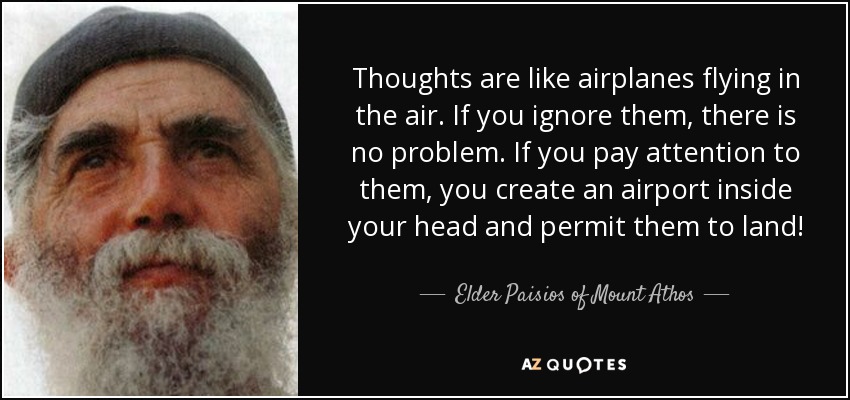
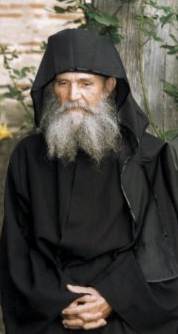 It is not so easy for the demons to harm a person who keeps the constant remembrance of God in his soul. They can tempt him, but it is difficult for them to harm him. This is because he does not permit them to trip him up, for he is armed with the weapon of the constant remembrance of God. Whoever has his soul’s eyes open and sees God is not easily harmed by the enemies.
It is not so easy for the demons to harm a person who keeps the constant remembrance of God in his soul. They can tempt him, but it is difficult for them to harm him. This is because he does not permit them to trip him up, for he is armed with the weapon of the constant remembrance of God. Whoever has his soul’s eyes open and sees God is not easily harmed by the enemies.
The very spiritual men of old did not need spiritual books. They did not have such a great need to read many patristic books, because they constantly reflected upon things about God. Whatever they saw immediately gave them an opportunity to reflect upon something, to discover something unknown. All of creation was a university for them. Wherever they turned their eyes, they saw something to reflect upon—sometimes the providence of God, other times His wisdom; sometimes His judgment, other times His teachings, and so on. With the eyes of their soul they saw invisible things. Reflecting upon them filled their hearts with spiritual knowledge.
We, people of today—since we do not have the eyes of our soul open—do not have the ability to remain in the spiritual reflection. Continue reading
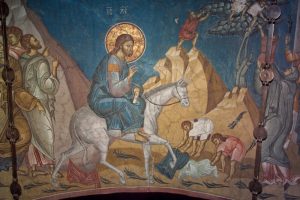 This event has more than historical significance; it also has a spiritual meaning, and therefore also a moral meaning for every modern-day Christian. According to the spiritual meaning, Jerusalem signifies the human soul, and the entry of the Lord into Jerusalem signifies the entrance of God into the soul.
This event has more than historical significance; it also has a spiritual meaning, and therefore also a moral meaning for every modern-day Christian. According to the spiritual meaning, Jerusalem signifies the human soul, and the entry of the Lord into Jerusalem signifies the entrance of God into the soul.
The multitudes of people, crowded and pushing one against another, joyfully awaiting and greeting Christ, symbolize the noble sentiments and exalted thoughts of a person who joyfully greets God, his Savior and Deliverer. The leaders of the crowd of people, who hate Christ and want to kill Him, personify the lower desires and earthbound thoughts, which take the upper hand over man’s noble nature and oppress it. Now this lower human nature rebels against God’s entry into the soul, for when God is enthroned there, the lower nature will inevitably be destroyed. Continue reading
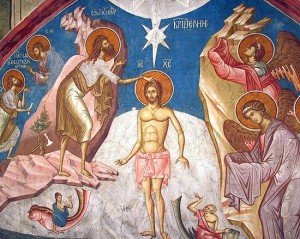 Here are the words of the Epistle reading for the great feast of the Baptism of the Lord, to which I would like to draw your attention for a moment, beloved brothers and sisters in Christ. Here it speaks of the manifestation of grace, which, according to the teaching of Apostle Paul, makes us chaste, righteous, and pious; that is, holy. What is this grace of which the apostle speaks here, as a means for acquiring the holy and salvific life? According to the teaching of St. John Cassian, we must distinguish two types of grace: grace in the external sense, through which the Lord acts throughout the whole world whether directly, or by means of angels, people, and even visible nature; and grace as an inner Divine strength. Precisely this latter grace we must understand in the given words of the holy apostle. Continue reading
Here are the words of the Epistle reading for the great feast of the Baptism of the Lord, to which I would like to draw your attention for a moment, beloved brothers and sisters in Christ. Here it speaks of the manifestation of grace, which, according to the teaching of Apostle Paul, makes us chaste, righteous, and pious; that is, holy. What is this grace of which the apostle speaks here, as a means for acquiring the holy and salvific life? According to the teaching of St. John Cassian, we must distinguish two types of grace: grace in the external sense, through which the Lord acts throughout the whole world whether directly, or by means of angels, people, and even visible nature; and grace as an inner Divine strength. Precisely this latter grace we must understand in the given words of the holy apostle. Continue reading
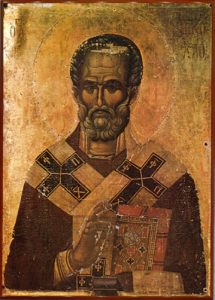 In the name of the Father, Son, and Holy Spirit.
In the name of the Father, Son, and Holy Spirit.
Among the hosts of those who pleased God there are many saintly bishops. Some lived lone ago; others lived more recently. Some are honored by the Church as a whole; others are venerated by local Churches such as our Russian Church. But we would not be wrong if we said that perhaps the deepest impression on the Church was made by two saintly bishops: St. Nicholas and St. John Chrysostom.
St. John Chrysostom is one of the Three Hierarchs whose memory is celebrated on the same date, January the 30th: St. Basil the Great, Gregory the Theologian and St. John Chrysostom. Each of them is great and glorious and, as they themselves revealed to a bishop of old, equal in glory before God. Continue reading
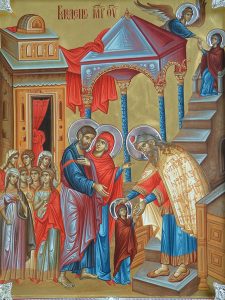 Since the Most Holy Virgin was brought into the temple to be instructed in the Lord, let us talk now about the benefit and necessity of going to the church of God as the house of God and place where we are raised for the Heavenly Fatherland. We are called Christians, and we are all called by Jesus Christ to the Heavenly Fatherland, to be heavenly citizens, Divine inheritors, co-inheritors with Christ. Our calling is very high, our duties are also just as important; our spirit should be very exalted, holy, meek, and humble.
Since the Most Holy Virgin was brought into the temple to be instructed in the Lord, let us talk now about the benefit and necessity of going to the church of God as the house of God and place where we are raised for the Heavenly Fatherland. We are called Christians, and we are all called by Jesus Christ to the Heavenly Fatherland, to be heavenly citizens, Divine inheritors, co-inheritors with Christ. Our calling is very high, our duties are also just as important; our spirit should be very exalted, holy, meek, and humble.
Who will show us what makes up our Christian calling and duty, of what spirit we must be, and how we should behave ourselves in various life situations? Who will give us the strength to live in the spirit of Christ—holy? The Church gives us all this. We can receive these spiritual powers in the temple of God through the Sacraments. Continue reading
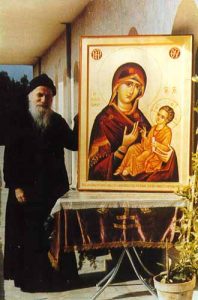 Do you know what a great gift it is that God gave us the right to speak to Him every hour and moment, wherever we are? He always listens to us. This is the greatest honor we have. For this reason we must love God.
Do you know what a great gift it is that God gave us the right to speak to Him every hour and moment, wherever we are? He always listens to us. This is the greatest honor we have. For this reason we must love God.
God concerns Himself with all the details of our lives. We must understand that He is not indifferent to our needs. We are not alone in this world. (I learned this spiritual truth in a revelation that I received in the altar of St. Sophia Church).
A person can become a saint anywhere. He can become a saint in Omonia Square, if he wants. At your work, whatever it may be, you can become a saint through meekness, patience, and love. Make a new start every day, with new resolution, with enthusiasm and love, prayer and silence — not with anxiety so that you get a pain in the chest. Continue reading
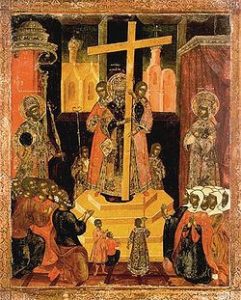 The Exaltation of the Lord’s Cross has arrived. Then the Cross was erected on a high place, so that the people could see it and render honor to it. Now, the cross is raised in the churches and monasteries. But this is all external. There is a spiritual exaltation of the cross in the heart. It happens when one firmly resolves to crucify himself, or to mortify his passions—something so essential in Christians that, according to the Apostle, they only are Christ’s who have crucified their flesh with its passions and lusts (cf. Gal. 5:24). Having raised this cross in themselves, Christians hold it exalted all their lives. Let every Christian soul ask himself if this is how it is, and let him hearken to the answer that his conscience gives him in his heart. Oh, may we not hear, “You only please your flesh in the passions; your cross is not exalted—it is thrown into the pit of the passions, and is rotting there in negligence and contempt!”
The Exaltation of the Lord’s Cross has arrived. Then the Cross was erected on a high place, so that the people could see it and render honor to it. Now, the cross is raised in the churches and monasteries. But this is all external. There is a spiritual exaltation of the cross in the heart. It happens when one firmly resolves to crucify himself, or to mortify his passions—something so essential in Christians that, according to the Apostle, they only are Christ’s who have crucified their flesh with its passions and lusts (cf. Gal. 5:24). Having raised this cross in themselves, Christians hold it exalted all their lives. Let every Christian soul ask himself if this is how it is, and let him hearken to the answer that his conscience gives him in his heart. Oh, may we not hear, “You only please your flesh in the passions; your cross is not exalted—it is thrown into the pit of the passions, and is rotting there in negligence and contempt!”